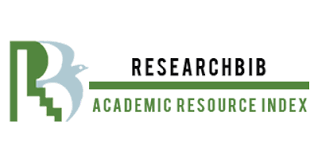THE POWER OF TECHNOLOGY TO EFFECTIVELY TEACH FOREIGN LANGUAGES FOR EFL LEARNERS
Keywords:
modern technology, classroom language learners, various disciplines system, innovative platformsAbstract
According to the research, learning a foreign language would be faster and more interesting in schools with the appropriate methodology and instructional materials. If teachers want to attain the desired results, they must develop themselves by learning new methods for teaching languages.
References
1.Gardner, R. C. (1985). Social psychology and second language learning: The role of attitudes and motivation. London, GB: Edward Arnold.
2.Gençlter, B. (2015). How does technology affect the language learning process at an early age? Procedia - Social and Behavioral Sciences.
3.Goodfellow, R. (1999). Evaluating performance, approach, and outcome. In CALL: Media, design, and applications, edited by Keith Cameron, 109–140.
4.Netherlands: Swets and Zeitlinger.
5.Gustad, A. R. (2014). The impact of technology tools on literacy motivation on elementary school English language learners: Podcasting in a 4th grade EAL class. International Schools Journal, 34(1), 75-84.
6.Hussain, Z. (2018). The effects of ICT learning on students’ vocabulary mastery in junior high school. Indonesia.
7.Hunt, A., & Beglar. D. (2002). Current research and practice in teaching vocabulary. Methodology in language teaching: An anthology of current practice. Cambridge: Cambridge University Press.
8.Huckin, T. & Coady, J. (1999). Incidental vocabulary acquisition in a second language: A review. Studies of Second Language Acquisition 21, 181-193.
9.Hulstijn, J. H. (2003). Incidental and intentional learning. In Doughty, C., & Long, M. H. (eds). The handbook of second language acquisition, 349-381. Oxford: Blackwell.







